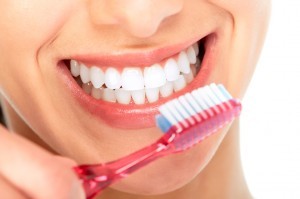 So, you know plaque and tartar are bad for your teeth. After all, you hear about it on nearly every toothpaste and mouthwash commercial, as well as from your dentist and dental hygienist. But, do you know what these substances actually are?
So, you know plaque and tartar are bad for your teeth. After all, you hear about it on nearly every toothpaste and mouthwash commercial, as well as from your dentist and dental hygienist. But, do you know what these substances actually are?
Whenever you eat or drink something, you leave behind some residue in your mouth. Although your saliva does a good job of rinsing away some of this debris, the remainder breaks down into bacteria, which coats your teeth in a sticky, colorless layer: this is plaque.
Fighting against plaque is a daily job since it’s not possible to exist without eating and drinking. Thankfully, plaque can be easily removed by brushing and flossing twice every day. If you’re less diligent in your oral hygiene, you’ll begin to see stains and plaque deposits along your gum line. Eventually, the bacteria will eat away at your enamel and gums and cause cavities, gingivitis, and other ailments, which are costly and often uncomfortable problems to treat — especially when the solution is as simple as brushing!
If you continue to neglect your oral health, those plaque deposits will harden and calcify and turn into a substance called tartar. Unfortunately, no amount of brushing will remove tartar, and only your dentist and hygienist can remove it from your teeth using a variety of hand tools. This is why it’s important to visit your dentist twice a year: even the most diligent brusher may have some minor tartar deposits in those hard-to-reach places, and left unattended they can form deep pockets under the gum line that can cause gum disease and can ultimately lead to tooth loss.
How else can you help take care of your teeth and prevent the buildup of plaque and tartar? In addition to brushing and flossing regularly and seeing your dentist at least twice a year, there are also toothpastes and mouthwashes that are formulated to prevent these deposits from forming. Just be sure to make sure to look for the American Dental Association (ADA) seal of approval on any dental purchases you make to ensure that the product really works as advertised. Any additional questions about plaque and tartar? Let us know win the comments!







Leave a Reply